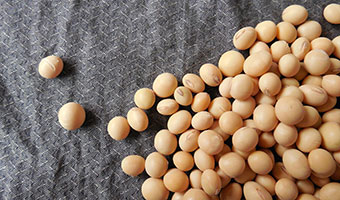
Soya lecithin is one of the popular lecithins available in the markets. Lecithin is found in multiple sources but is commercially obtained mainly from oil plants such as soy, sunflower and rapeseed (canola). It has wide applications across food, cosmetics, pharmaceutical and healthcare sectors. In fact, you may be surprised to know that you already intake a lot of lecithin in your day-to-day diet already.
Lecithin physiologically acts as a carriage medium in the body cell membranes, promoting enzyme activity, metabolism and fat emulsification. With its unique double function as physiological active ingredient and biological emulsifier, it has gained popularity over the years as a health ingredient.
• Lecithin is known to be an essential for proper biological functioning
• Lecithin is vitally essential to the body, forming substantial:
• 30 per cent of the brain’s dry weight and
• 73 per cent of the liver’s fat
• The phospholipids available in lecithin are needed by every cell in the body and are a key building block of our cell membranes; without it, they will harden and become brittle.
• Lecithin is the main source of choline in the diet occurring widely in a variety of foods – Pure Lecithin is the best and most bio-available way to get choline
In fact, taking granular lecithin provides a “timed release" form of choline, raising blood choline levels higher and for longer periods of time. De-oiled or Powdered lecithin is easier to handle, store and mix with your day-to-day food stuff. Further, de-oiled lecithin is also manufactured with finesse keeping in mind the final application of human consumption.
• Aids in improving immune systems: Supplementing with lecithin is said to improve immune function by increasing macrophage activity by 29 percent. Macrophages engulf debris, microbes, cancer cells and other foreign matter.
• Helps reduce Cholesterol level: Lecithin is an emulsifying agent that breaks down cholesterol by helping fats mix with water, easing their removal from the body. This prevents cholesterol build-up in artery walls. This in turn also improves cardiovascular health.
• Improves learning, concentration and reaction time: 30% of Brain weight is composed of lecithin. Phosphatidylcholine in Lecithin is an important nerve chemical which helps to improve Brain and Nerve function.
• Lecithin is a major component of liver: Lecithin Granules raise choline levels in the liver and improves liver functions naturally. It helps repair liver damage caused by alcoholism.
• Breaks down fat stored in Gall balder and prevents stones formation in it.
• Helps prevent clogging of milk ducts, during breast-feeding.
• Helps reduce stress and anxiety, and increases physical performance.
• Improves the absorption of nutrients in the body.
Lecithin is a 100% natural substance and is an essential building block of the body. Its consumption adds value to your body and overall health in myriad ways. Having said that, one needs to keep a few things in mind about lecithin consumption:
• Allergies from Soy / Eggs: People with allergies to eggs or soy should check the source of the lecithin in their supplements and food before consuming. However, Sunflower Lecithin provides a favourable alternative to this.
• Consumption during pregnancy / breast-feeding: Not enough is known about the use of lecithin during pregnancy and breast-feeding.
 We shall go through the diverse aspects of lecithin in our weekly blog series. Stay tuned with us at Lecilite Ingredients and check our website lecilite.com to immerse into the fascinating world of Lecithin.
We shall go through the diverse aspects of lecithin in our weekly blog series. Stay tuned with us at Lecilite Ingredients and check our website lecilite.com to immerse into the fascinating world of Lecithin.
